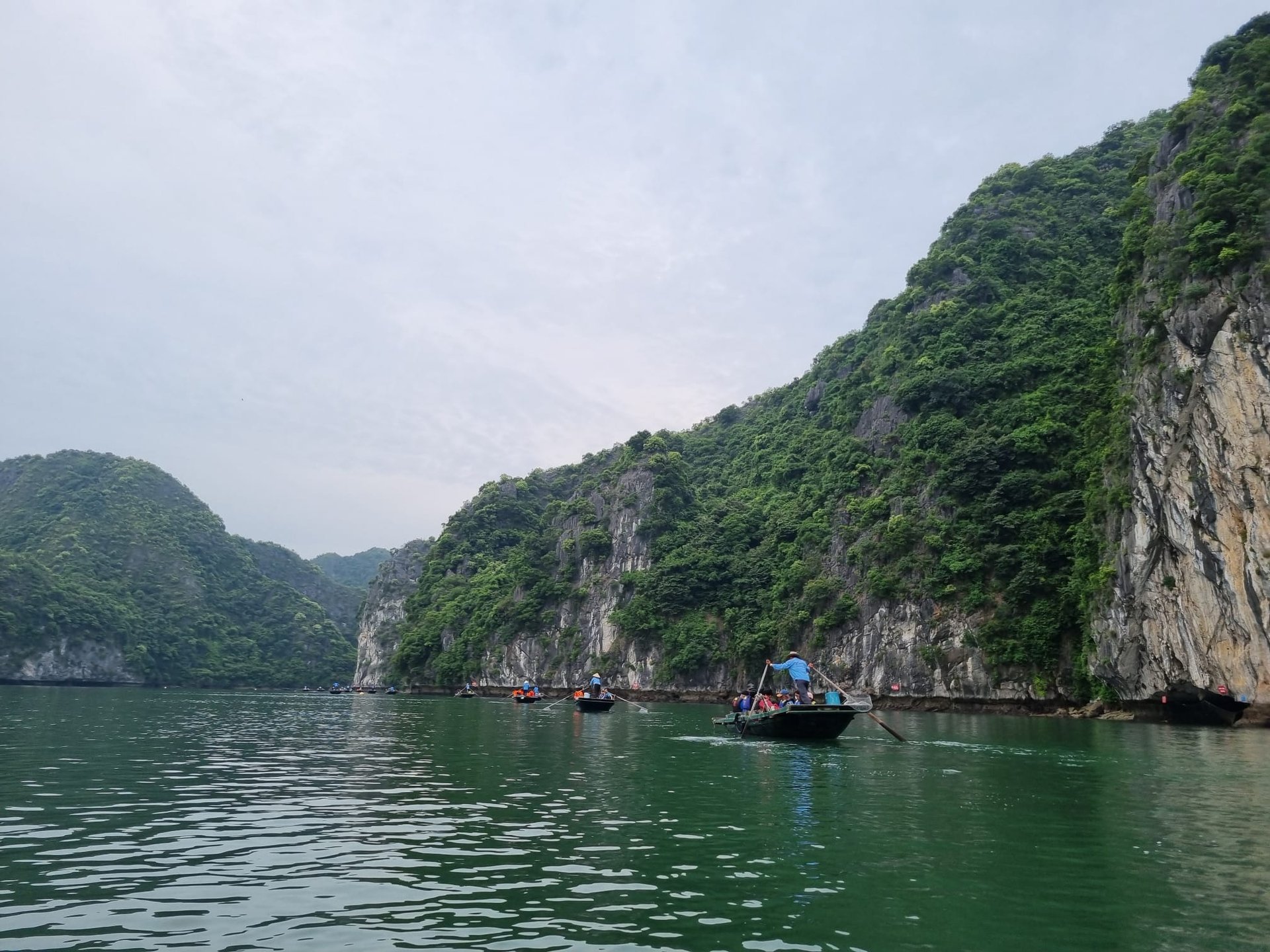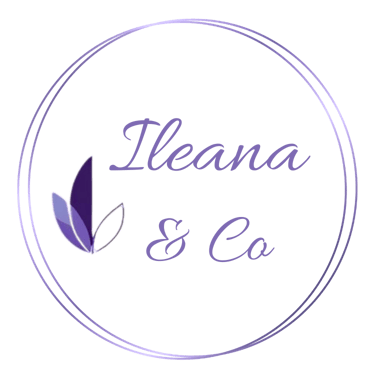What Solo Travel Taught Me About Leadership and Adaptability
Insights from navigating my solo travel through Vietnam that transformed my approach to programme management
5/20/20256 min read


As the early morning mist dispersed to reveal the limestone landscape of Ha Long Bay, I was embarking on a bamboo boat at 6am, surprised to find out that the air was still as humid and warm as the night before, as we started exploring the Dark and Bright caves and islets while most tourists were still asleep. This moment of choosing the path less travelled at an hour many would avoid perfectly captures what solo travel has taught me about effective leadership and programme management: sometimes the most rewarding experiences come when you step outside your comfort zone, try something new and embrace the unexpected.
Embracing Uncertainty: From Hanoi's Streets to Project Timelines
My journey started in Hanoi's bustling Old Quarter, where I was immediately surrounded by the loud scooter and traffic noises, street vendor calls, and the constant motion of a city that never seems to pause. I was expecting a sensory overload but I actually enjoyed how exhilarating and exciting it was and not just overwhelming! As I navigated my way around, taking depth breaths before crossing the street with much needed confidence, I quickly learned that rigid planning and inflexibility would only lead to frustration and delays.
I believe this lesson translates directly into my work as a Programme Manager across various sectors and industries. When leading complex initiatives, I've discovered that the most successful programmes aren't always those with the most detailed plans and hard checkpoints, but rather those guided by leaders who truly listen to their teams, are attuned to changes, adapt when the unexpected arises and implement lessons learned along the way. Just as I learned to find the best way to weave through Hanoi's traffic with a smile rather than fear, I now approach project roadblocks as opportunities to find innovative and creative solutions rather than obstacles to progress.
I always find it so interesting being in a country where you don’t speak the language as you learn to communicate clearly, in a concise way, and I think this really came in handy as part of my work ethics is being clear in your communication whilst listening intently to others as well as following up with concrete next steps. I see it time and time again that clarity creates confidence and a trustworthy bond, whether communicating with a taxi driver in a foreign country or aligning stakeholders on project deliverables.
Building Authentic Connections: The Universal Language of Respect
I have to admit, the moment I found out I need to refine my negotiation skills was in Hội An's vibrant night markets, while purchasing little gifts and souvenirs. That being said, I really enjoyed that this was not just a transaction but a friendly and warm interaction, as you are being greeted with a smile, trying to understand each other whilst I cannot remember the pronunciation of the very little words I managed to learn prior to the trip. All throughout the respectful bargaining I feel this genuine connection in those moments that transcended our different backgrounds.
I realised I approach stakeholder engagement in a similar fashion as I truly believe that by treating everyone with respect and listening with intent, regardless of their position or influence is what builds long-lasting relationships based on trust. I think building genuine connections are based on mutual respect, empathy, and shared objectives and not just a formal agreement to work together. Collaboration goes beyond that.
I like to bring the same curiosity I had when exploring Vietnamese temples, museums and places, to time when I moderate panels discussions or facilitate workshops. And I do this by asking the right questions, listening deeply to understand people's points of view, and creating safe spaces where authentic collaboration can take place. Just as I connected with local vendors on my travels despite language barriers, I always look to bridge gaps for stakeholders whether at tech startups, public sector organizations, consultancies, nonprofits, and larger institutions, by focusing on our common goals rather than our differences.
Strategic Adaptation: Reading the Room and the Landscape
Traveling between Hanoi, Đà Nẵng, and Ho Chi Minh City, I felt like I received a masterclass in adaptation. Every place had a unique feel about it in terms of distinct cultures, paces, and challenges, from the traditional ancient feel of Hanoi to the beachside calm of Đà Nẵng and the modern bustle of Ho Chi Minh City.
I believe my approach to programme management has been shaped by this as well, as I've learned to read the room just as carefully as I read those unfamiliar Vietnamese streets. I think it’s normal that for different projects and working with different types of stakeholders you will require different leadership styles, but quickly adapting your approach while maintaining authenticity and staying true to your values it’s a real balancing act. I am definitely proud of my ability to toggle between big-picture strategic thinking and detailed operational execution and I think this was something I perfected while balancing the careful planning of day trips to historic sites like Huế's Đại Nội Citadel with the spontaneous joy of exploring Đà Nẵng on a scooter, making unplanned stops wherever curiosity led me.
Having an eye for detail while keeping the strategic view in mind is something I practice daily. Whether it's noticing the intricate patterns in Vietnamese architecture or identifying the small adjustments that can keep a complex programme on track, I believe that excellence lies in this balance between vision and precision.
The Power of Reflection and Continuous Learning
After long days of exploring Vietnam's treasures, it was really rewarding to return to my hotel as to a peaceful oasis and reflect on all I had absorbed. Whether enjoying the sunrise from my Đà Nẵng beachfront room or unwinding in a rooftop jacuzzi with amazing views of Hanoi, these moments of reflection and winding down were essential to processing the whirlwind of experiences.
On another note, I’d like to stress here how incredibly necessary it is to make space in your day to take a few deep breaths, reconnect with yourself, your purpose, look at what brings you excitement and joy, and where you might want to improve, and really just process all the you’ve experienced. This practice has become central to my leadership approach. I make time after important meetings, events, or project milestones to pause and consider what worked well and what could be improved. I encourage my teammates to do the same, and help create a culture where continuous learning is valued as much as continuous delivery.
Whether conducting market research to uncover new opportunities or analysing data to refine strategies, I approach information gathering with the same enthusiasm I brought to exploring Vietnamese culture. The synthesis of complex information into actionable insights is a skill I practice daily, both in professional settings and when making sense of new cultural contexts while traveling.
Creating Meaningful Experiences Through Authentic Leadership
Perhaps the most significant parallel between solo travel and programme management is the focus on creating meaningful experiences. When I was travelling through Vietnam, the most memorable moments weren't necessarily the perfectly planned activities but the authentic interactions and unexpected discoveries, whether it was the 6am boat ride through limestone caves, kayaking in the most wild places, learning to wrap and cook spring rolls on a cruise boat in Ha Long Bay, or watching one of the most beautiful sunrises I've ever seen from my hotel room in Đà Nẵng.
Similarly, in my work supporting tech and innovation-driven organizations, the most impactful initiatives aren't always those that follow a linear path. Leading high-profile events, moderating panels, and creating content about tech-driven solutions requires a careful balance of thorough preparation and openness to the moment.
Bringing It All Together: The Journey Continues
Solo travel taught me that a journey's value isn't measured by how closely it adheres to an itinerary but by how much it transforms the traveller. Similarly, programme success isn't determined solely by meeting deadlines and budgets but by creating lasting impact, fostering growth, building genuine connections and meaningful outcomes.
I like to think that I always bring the warmth, curiosity, and adaptability I gained through my travels to every piece of work I undertake, whether in managing a project, writing or designing a piece of content, delivering an event. As I support clients remotely, utilizing technology to ensure smooth collaboration regardless of location, I'm reminded of how my experiences navigating Vietnam's diverse landscapes prepared me for this digitally connected world. The ability to build authentic connections across distances, to listen deeply to needs and respond with clarity and care are skills that translate perfectly to virtual collaboration. Just as I immersed myself fully in Vietnam's culture, I immerse myself completely in the challenges my clients face, bringing my whole self to finding solutions.
The journey continues, both professionally and personally. I said it in a previous blog that Vietnam left me with "a whirlwind of experiences and each moment more memorable than the next," so I think that now I also approach each new project with excitement, knowing it will teach me something valuable, challenge me in unexpected ways, and ultimately leave both myself and the organizations I work with better prepared for whatever comes next.
